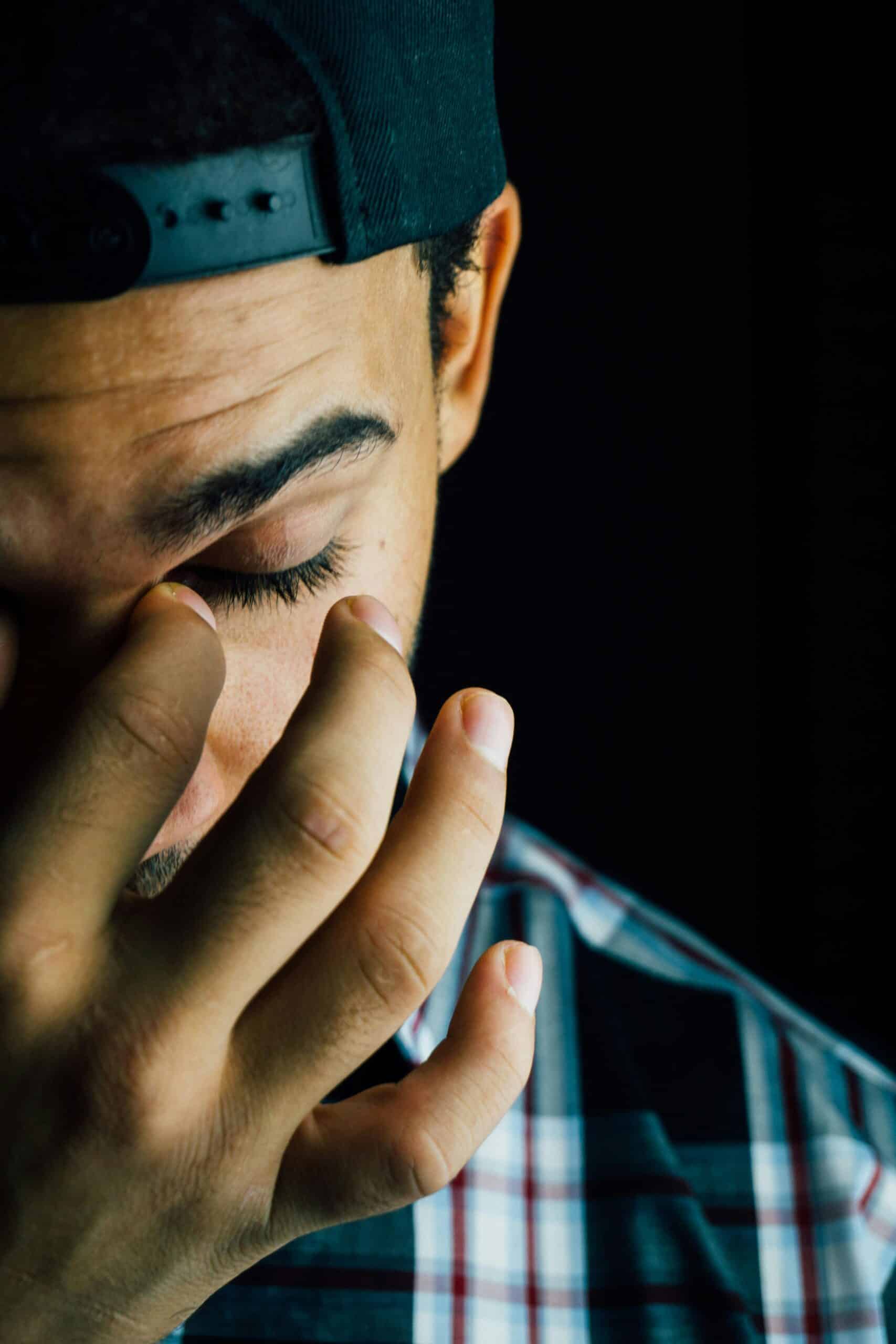Healing Teen Anxiety
Anxiety is treatable and can be overcome through personalized treatment strategies. Through learning strategies, tools and deeply engaging with therapy, teens can regain control of their lives.

What is Anxiety?
Anxiety is a natural emotion, and occasional anxious feelings are a normal part of life. However, when anxiety persists, causes distress, or hinders a person from carrying out necessary or desired activities, it becomes a concern that warrants professional treatment. Anxiety can manifest in specific contexts like test-taking or social interactions, leading to conditions such as test anxiety or social anxiety, or it can be pervasive across various situations, known as generalized anxiety. In teens, anxiety may present differently than in adults; adolescents often experience more physical symptoms, such as stomach aches or headaches, rather than cognitive symptoms, such as excessive worry and racing thoughts commonly reported by adults.
How Do We Treat Anxiety?
We utilize evidence-based cognitive-behavioral therapy to treat anxiety disorders effectively. This approach helps adolescents identify and understand the thoughts and behaviors associated with their anxiety and teaches them alternative, healthier ways to think and respond. For instance, anxiety often arises from a perceived mismatch between an event and its anticipated negative outcomes. Therapy guides individuals to recognize and challenge these faulty thought patterns. Additionally, anxiety can lead to avoidance behaviors, perpetuating and exacerbating the condition. Therapy encourages teens to face these situations directly and employs relaxation techniques to help them cope with and manage their fears.
Overcoming difficulties in treating Anxiety
Anxiety frequently occurs alongside other mental health issues, such as depression and ADHD, which can complicate treatment. A hierarchical approach is often employed in treatment, where the most severe or distressing symptoms are addressed first. In this strategy, reducing anxiety symptoms may be a secondary objective, following the stabilization of more pressing mental health concerns. This method ensures a comprehensive approach to mental health, addressing all underlying and interconnected issues effectively.
Benefits of healing from Anxiety
Anxiety often constricts a person’s world, limiting the people they spend time with, the places they go, and the activities they do. Through treatment, individuals learn about anxiety and how to manage it, gradually feeling more capable of engaging in new situations, facing challenges, and increasing social connectedness. Learning to cope with anxiety allows them to expand their world and live more fully.
Therapeutic modalities used for Anxiety
At Antelope Recovery, our team of experienced professionals utilizes numerous therapeutic modalities to aid your teen’s journey to health and happiness. Explore some of the modalities used below.
A Glance at Our Intensive Care for Anxiety
Monthly Case Consultations
Ongoing Virtual Support
Initial Assessment
Parent Support
Custom Treatment Plans
Interdisciplinary Care Coordination
Learn More About Our Virtual IOP Program in Colorado
Our IOP lasts between 4-12 weeks and includes 3-20 hours of care a week, depending on what is needed for your teen to build the foundation necessary for lasting recovery. Treatment plans are completely customized to your teen’s needs.
Your Family’s Recovery Roadmap
- Schedule a free consultation to kickstart your teen’s recovery and create a personalized action plan.
- Our team at Antelope Recovery takes the reins, crafting the perfect recovery plan for your teen.
- Work the program through to completion! We offer continued post-treatment support through our alumni and services network.
Invest in the Best Care for Your Teen

Personalized Care
We customize your teenager’s treatment plan and weekly schedule to ensure they are on the most effective path to recovery.

Home-Based Recovery
Our virtual IOP allows teens to practice therapeutic skills in the comfort of their own homes, integrating healing into their daily lives.

Experienced Providers
Our team brings years of expertise and understanding to every therapy session or group, ensuring your teen receives top-tier care.

Continuous Improvement
We’re pioneers in the field of teen mental health, using data to drive innovation and enhance services for our clients.
Frequently Asked Questions
-
We do not know what causes anxiety; however, several factors are associated with an increased risk of developing anxiety disorders. These include family genetics, certain personality traits, childhood adversities, being female, and lower household income.
-
Anxiety disorders affect about 15% to 20% of children and adolescents at some point. The most common diagnoses among young people are separation anxiety, social phobia, and specific phobias.
-
Anxiety can be situation-specific or more pervasive across various settings. Some individuals may experience heightened anxiety in response to a particular stressor, while others may suffer from more chronic anxiety.
-
Teens often experience anxiety differently than adults, with rejection from peers and fear of negative evaluation being common triggers. While anxiety symptoms can vary between adolescents and adults, teens may show signs of anxiety through physical symptoms, withdrawal, isolation, irritability, and lashing out.
-
A diagnostic evaluation typically includes a structured clinical interview to collect information such as personal history, onset and course of current psychological symptoms, and past treatment. It may also incorporate the person’s responses to various validated self-report measures of psychological functioning.
-
Maintaining open communication is the most important thing a parent can do. Ask your child about their feelings, validate these feelings, and normalize the struggle with mental health. Help them set positive and realistic expectations by expressing confidence in their ability to manage whatever happens – don’t promise them that something won’t happen or tell them not to worry. Support them to express and manage anxiety, and to problem-solve themselves. If you feel overwhelmed by your teen’s struggle, consult with a mental health professional to see if treatment is right for them.
-
Recognizing that you need help and asking for help can be scary and difficult. Telling your parents what has been going on for you is the first step. Let them know about times when it has felt like too much for you. Remember, you don’t have to do it all on your own – your parents want to help and support you.
-
Your teen does not need to have a formal diagnosis to be admitted to Antelope Recovery’s program. We understand that mental health issues can be complex and sometimes unclear. As part of our intake process, our professional therapists will conduct a thorough assessment to understand your teen’s unique situation, needs, and challenges. This evaluation helps us determine if our program is the right fit and how we can best support your teenager. Our goal is to provide care that meets your family’s specific needs, regardless of a prior diagnosis.
-
Virtual mental health care has proven to be highly effective for teens. In addition to efficacy, virtual care offers increased accessibility, flexibility, and comfort — allowing teens in any part of Colorado to access intensive outpatient services.
Our therapists are skilled in utilizing virtual platforms to create engaging and therapeutic connections, and our virtual intensive program emphasizes integrating healing into everyday life. We also provide a user-friendly dashboard that allows you to easily navigate your teen’s care and access information on payments, treatment notes, and more.
-
The duration of treatment at Antelope Recovery is tailored to the individual needs and progress of each teen. Typically, our IOP lasts between 4 to 12 weeks and OP lasts anywhere from 1 to 12 months.
Depending on your teen’s unique needs, they can spend anywhere between three to five hours a day in sessions and other structured activities. Whether short-term or long-term, our treatment’s length is aimed at supporting meaningful, lasting change, and we remain committed to providing ongoing support for as long as it’s needed.
The Antelope Recovery Blog
Tune into our blog for regular doses of valuable insights and actionable advice.
Partner With Us for Your Teen’s Recovery
Empower your teen and strengthen your family with our innovative and compassionate approach to recovery. Schedule your free 15-minute consultation now, and let’s begin your teen’s journey to recovery today.







